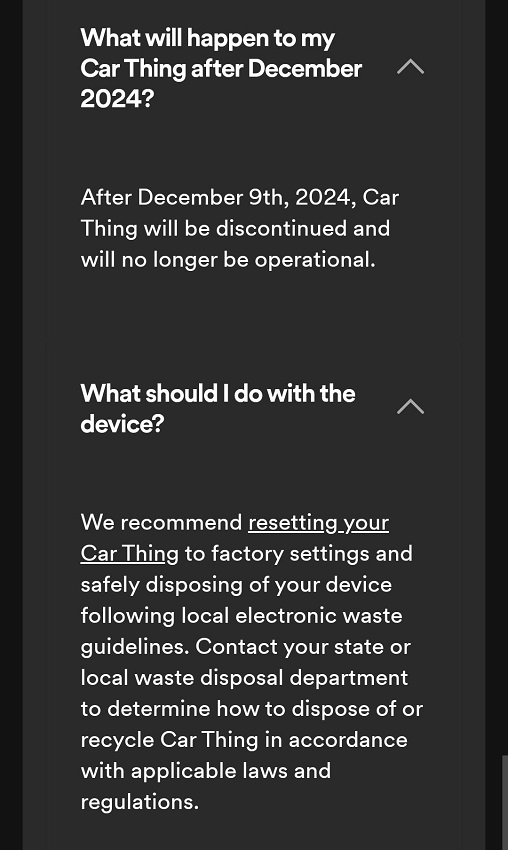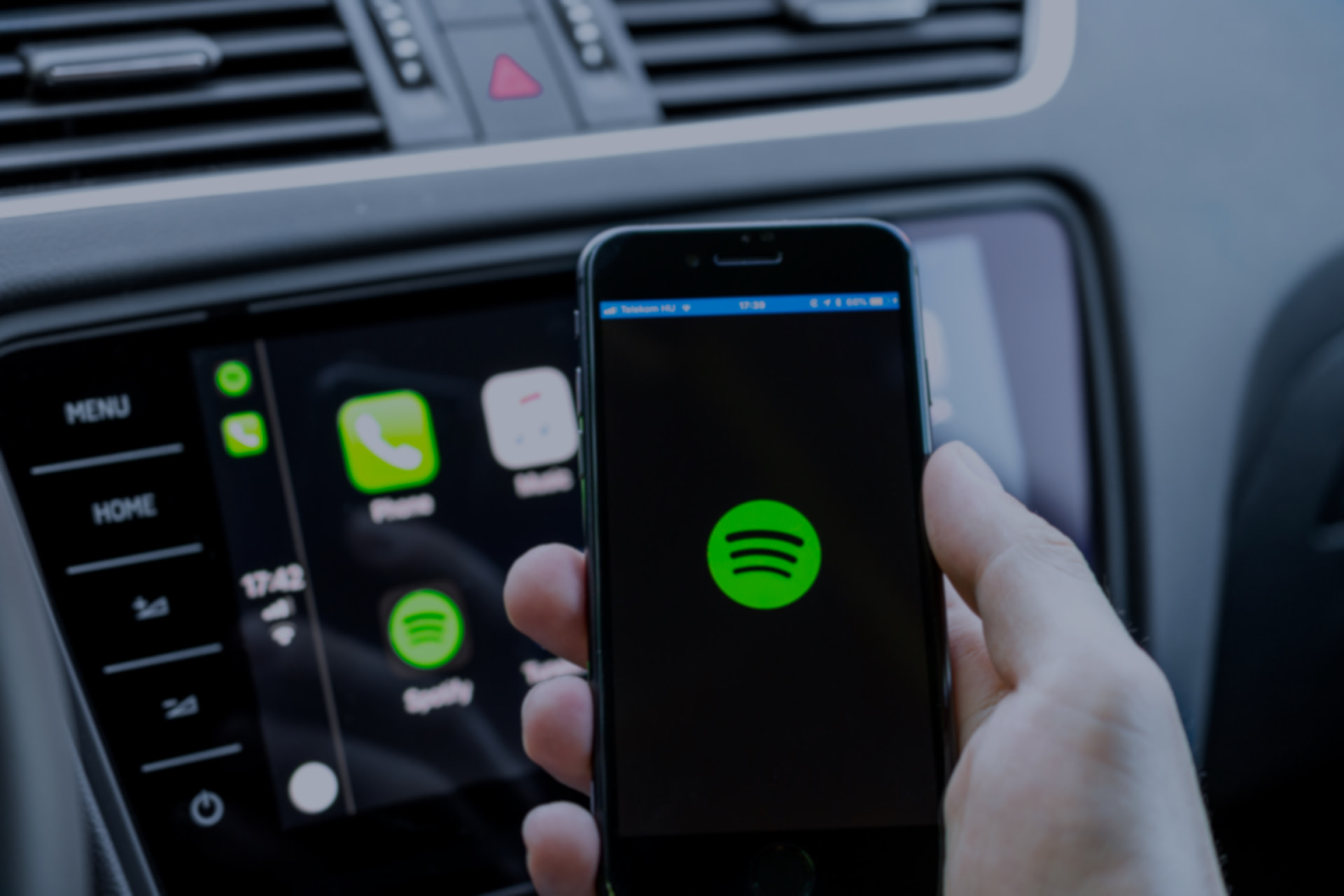Not every product launch is successful, and in some cases, that can lead to excess material waste. That appears to be the case for Spotify after it discontinued its in-car audio player.
What happened?
In May, a Redditor highlighted Spotify's announcement that its Car Thing hardware would no longer work after Dec. 9.

"Spotify is dropping Car Thing," they wrote in the r/mildlyinfuriating subreddit, sharing a screenshot from the company's article on the matter and pointing out some people might just throw the device away.
The digital music provider explained that it doesn't offer a trade-in option and recommended that customers contact their local disposal departments to discard or recycle the item properly.
"Yay E-waste!!! Seriously, what prevents them from continuing support for this?" one commenter asked.
"It's infuriating, honestly," another person said. "I use my Car Thingy every time I'm in my car. It's a 2013 Sonata, but it doesn't have a screen, and it's dangerous to use your phone to change songs."
Why is this important?
The short-lived Car Thing venture isn't only an inconvenience for consumers, several of whom shared on Reddit that the device is particularly helpful for people with older cars who want to enjoy music safely. It'll also contribute to the fast-growing problem of electronic waste.
Statista notes that the amount of discarded electronic material has almost doubled since 2010, with more than 68 million tons generated in 2022 alone.
E-waste can be highly toxic, posing a hazard to human health and the environment. According to the World Health Organization, lead is one of the most common substances released by the improper recycling, storing, or dumping of electronic items.
Many discarded electronic devices also contain plastic components, and Car Thing is no exception. In a 2022 product review, PCMag said that the body and buttons are made from the material.
Most plastics are produced from dirty fuels such as oil and gasoline, polluting our planet during manufacturing and at the end of their lives.
Now, consumers won't even have the option of using Car Thing — a product that was on the market for just two years.
Why is Spotify discontinuing Car Thing?
Billboard reported in May that the device was not profitable for the music streaming giant.
"Frankly haven't seen the volume at the higher prices that would make the current product financially viable," a Spotify executive said on an earnings call, according to the outlet.
However, even though the unsuccessful product may be difficult to recycle or dispose of properly, Spotify is making a difference in other areas. On its website, Spotify acknowledges the importance of understanding its impact on the environment and says that it has already made its offices more energy efficient as it works toward reducing pollution from operations.
"By understanding our sources for GHG emissions and environmental impact, we can set goals, prioritize actions and work effectively to reduce emissions in order to reach our net zero target," the company writes on its Diversity, Equity & Impact page.
However, it's unclear why consumers who are happy with their Car Things won't be able to operate their devices on old software or return them to Spotify for use in other non-Car Thing products. At this time, the company does not plan to produce a similar device.
What can be done about electronic waste more broadly?
It's unfortunate that Spotify didn't appear to consider an in-house plan to recycle old Car Things before the product's discontinuation. Yet it's worth checking to see if your local e-waste recycler can accept the material before considering disposal options.
In general, it can be difficult to say goodbye to well-loved devices, but once our electronics can no longer operate, they don't have to contribute to the clutter in our homes.
Multiple companies have programs that allow you to trade in your old electronics, and some even pay you to do so.
For example, Gazelle will buy select cellphones and laptops and sell them at reduced costs. Staples also accepts a range of e-waste and office supplies. Purchasing used electronics is also a great way to save money, reduce waste, and support employment opportunities.
Join our free newsletter for cool news and actionable info that makes it easy to help yourself while helping the planet.









